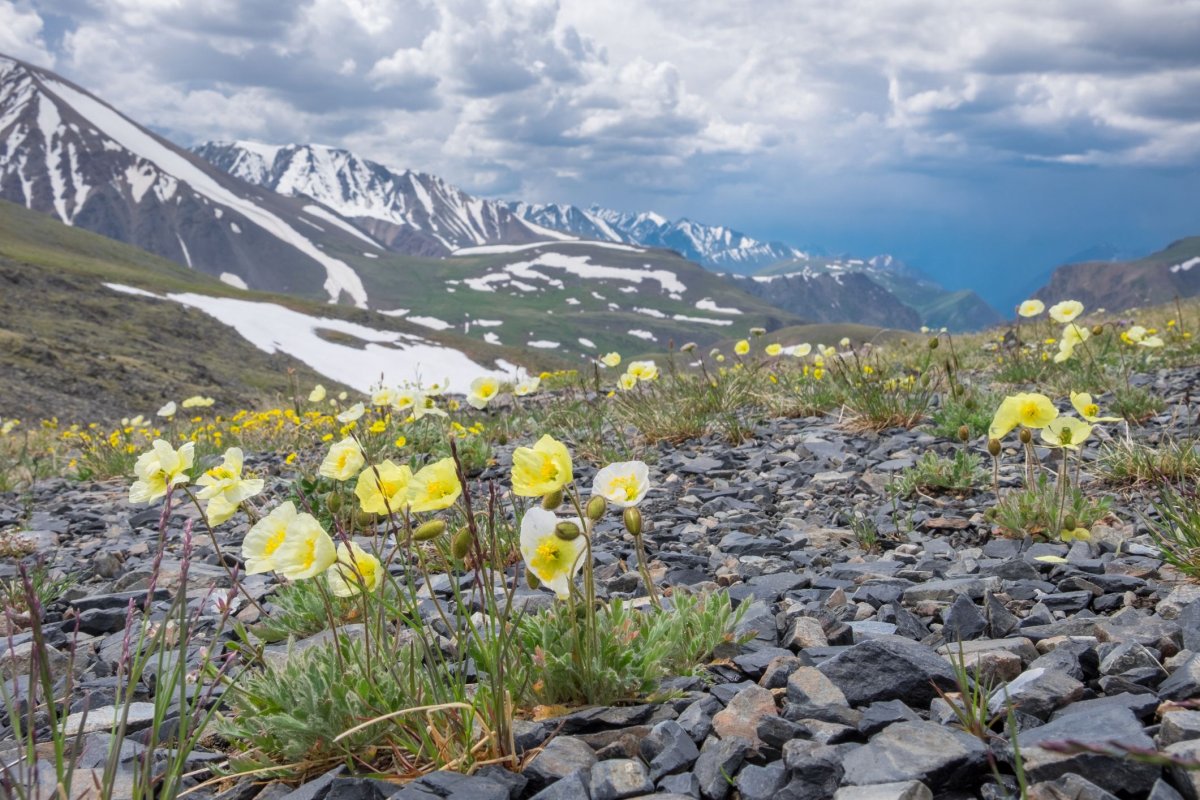From rising oceans to species extinction, climate change is affecting our world in numerous ways. Now, an international team of researchers has revealed the wide-ranging impact that the changing climate is having on plants in tundra regions and the profound consequences this could have for the planet as a whole.
Tundras are cold, treeless ecosystems found across Alaska, Canada, Northern Europe and Siberia, which are some of the harshest environments on Earth. They are usually covered in snow for much of the year, and are home to hundreds of species of low-lying shrubs, grasses and other plants which play a critical role in the Earth's carbon cycle.
For a study published in the journal Nature, the researchers analyzed more than 60,000 plant trait records from sites across tundra environments in Arctic and alpine regions.
The team showed that plants in these areas have grown taller over the past 30 years as a result of warming temperatures. They also found that taller species of plants are moving into the lower reaches of the Arctic from more southerly regions. Vernal sweetgrass, for example, which is common in lowland Europe, has now moved in to areas in Iceland and Sweden.
Significantly, tundra regions are warming more rapidly than any other type of environment, or "biome", on Earth.
"Temperatures in the Arctic have risen by about 1 degree Celsius [1.8 degrees Fahrenheit] in summer and 1.5 degrees Celsius in winter over the past three decades, some of the fastest rates of warming on the planet," Isla Myers-Smith, one of the authors of the study from the University of Edinburgh's School of GeoSciences, told Newsweek.
"Warming is also occurring at the tops of the world's mountains in the ecosystems above the treeline known as the alpine," she said. "Together the Arctic and alpine form the tundra biome—the vegetated land experiencing the cold extremes of life on our planet."
Changes in the structure and composition of plant communities in this region, driven by warming, have important implications for the functioning not only of the tundra ecosystem, but also for the planet as a whole, according to the researchers.
"Tundra plants grow slowly trapping carbon below ground," Myers-Smith said. "We think that as much as two thirds of plant biomass is actually below ground in tundra ecosystems. These northern ecosystems where soils are frozen all year round are thought to contain about one third of the world's soil carbon. If the plant species are changing and the characteristics of those plants are shifting, then that could alter the way carbon is stored in these ecosystems."

"For example, if plants are getting rapidly taller in the tundra this matters because that means plants can stick above the snowpack in the winter and spring and make the surface of the tundra darker," she said. "White snow and ice reflect the sun's heat, but if the tundra surface gets darker this could help to warm up these cold ecosystems, accelerating vegetation change."
The overall effect of this could potentially lead to an increase in the release of greenhouse gases into the atmosphere, and, consequently, an acceleration of global warming—although more research is needed in this area to fully comprehend the processes at work.
"Understanding how tundra ecosystems have been changing will help us make better predictions of future change as the climate warms and what the impacts might be for the planet as a whole," Myers-Smith said.
Uncommon Knowledge
Newsweek is committed to challenging conventional wisdom and finding connections in the search for common ground.
Newsweek is committed to challenging conventional wisdom and finding connections in the search for common ground.
About the writer
Aristos is a Newsweek science reporter with the London, U.K., bureau. He reports on science and health topics, including; animal, ... Read more
To read how Newsweek uses AI as a newsroom tool, Click here.








